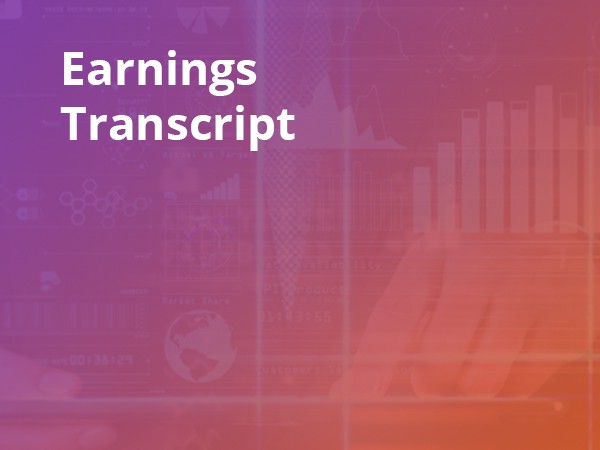There’s one type of income you won’t see on your paycheck but could still impact your tax bill: phantom income. Unlike a good ghost story, phantom income isn’t fiction to the IRS. It’s very real when it comes to your tax return and your tax liability — you just never actually see the money in your bank account.
So, what exactly is phantom income, and how can you stop it from haunting this year’s tax return? Let’s take a look at some examples.
What is phantom income?
Phantom income (sometimes called phantom taxes) happens when the IRS requires you to pay income tax on money you never actually received. This often creates a mismatch between your tax obligations and your actual cash flow. The horror!
Put simply: You owe tax on money you don’t actually have in hand, which can create unexpected tax liability and confusion for unsuspecting taxpayers.
What is imputed income?
Phantom income is often considered a form of imputed income, which is the tax term for non-cash benefits or perks that don’t come as a paycheck but still count as taxable income for tax purposes. A few examples are:
Employer-provided housing
Company car use
Domestic partner health benefits
So, these perks don’t show up as a paycheck, but they still increase your tax obligations, making them a type of phantom income.
Phantom income examples
Phantom income creeps into all sorts of industries and financial situations. Below, we’ll go over some of the most common examples of phantom income.
Phantom income in real estate
Imagine you own a rental property. Thanks to depreciation rules, your tax return may show a gain when the property is sold, even if the cash distributions you received didn’t feel like much. That “paper gain” increases your taxable income, creating a tax burden that doesn’t match your actual cash flow.
How it’s reported: Real estate phantom income usually shows up as part of your capital gains on Schedule D when you sell, or as rental activity on Schedule E. Your tax liability depends on depreciation recapture rules, which can make the gain look bigger than your actual profit.
Phantom income in limited partnerships
Partners in a pass-through entity like a partnership often get taxed on profits allocated to them, even if the business didn’t make cash distributions that year. You’ll see this spelled out on your Schedule K-1. If the partnership reinvested earnings instead of paying them out, you could owe taxes on income you never saw.
How it’s reported: Each partner receives a Schedule K-1 that must be included with their individual income tax return. The K-1 outlines the allocation of profits (or losses), which flows onto your Form 1040 even if you didn’t get any cash.
Phantom income in private equity and law firms
Business owners, associates, or partners in firms (like a law firm) may have profit allocations under their operating agreement or partnership agreement. Profit allocation is a method where a business assigns profits and losses to the owners for tax purposes. This might not result in actual cash, but for tax purposes, the allocations are treated as income.
How it’s reported: Like partnerships, these allocations appear on a Schedule K-1, which feeds into your individual income tax return. If your firm doesn’t provide tax distributions, you’ll need to come up with cash out of pocket to cover the taxes.
Phantom income from debt forgiveness
If a lender cancels or forgives your debt, the IRS may treat that forgiven balance as part of your gross income. For example, forgiven mortgage debt, student loans, or credit card balances may all trigger phantom taxes. You’ll likely get a Form 1099-C from the lender reporting the “income” (forgiven debt) if this happens.
How it’s reported: Lenders issue Form 1099-C, Cancellation of Debt, which you must include in your gross income on your tax return. In some cases, you may be able to exclude it by filing Form 982 (such as during bankruptcy or insolvency).
Phantom income in investments
Zero-coupon bonds and STRIPS
Unlike traditional bonds, STRIPS and zero-coupon bonds don’t make regular interest payments. Instead, you buy them at a deep discount and receive the full face value when the bonds mature. The catch? The IRS still treats the annual growth in bond value as imputed income, even though you don’t see any actual cash until maturity. That means you’ll owe phantom income tax each year as the bond increases in value, but you won’t see that money in hand until you cash out the bond.
How it’s reported: The issuer typically sends you Form 1099-OID, Original Issue Discount, which reports the amount of interest to include in your gross income each year. This information flows onto Schedule B and then your Form 1040.
Inflation-indexed bonds (like TIPS)
These bonds adjust their principal based on inflation. While you don’t pocket that inflation adjustment until bond maturity or sale, the IRS still treats the increase in value as taxable income each year — another classic case of phantom income.
How it’s reported: The inflation adjustment is also reported as OID interest on Form 1099-OID. Even though you don’t see cash until later, the IRS expects you to include it in your current year’s tax return.
Mutual funds and ETFs
These can also generate phantom income when the fund sells investments during the year. You might get hit with taxable capital gains distributions even if you didn’t sell any shares yourself.
How it’s reported: You’ll usually get a Form 1099-DIV showing dividends and capital gains distributions, which flow into your Form 1040.
Phantom income from non-cash compensation
Sometimes your job pays you in more than just money. Think of perks like employer-paid life insurance, non-spousal health benefits, company housing, or sweat equity (the value of your labor, effort, and time) in a startup. Even though you’re not receiving liquidity (cash in hand), the IRS views these perks as imputed income and expects you to include their value in your taxable income.
Some examples:
If your employer provides health insurance for a domestic partner who isn’t a legal spouse, the value of that coverage can be treated as phantom income to you.
If you receive company stock or equity in exchange for your work instead of cash, the IRS may require you to recognize that equity’s fair market value as business income, even if you can’t sell it yet.
How it’s reported: Employers generally include these fringe benefits as imputed income on your Form W-2, which then flows into your tax return as part of your gross income. With equity compensation, the value may be taxed when shares are granted, vested, or exercised, depending on the type of plan.
Tax tip: If you receive restricted stock or equity, you can sometimes make a Section 83(b) election with the IRS. This lets you choose to pay taxes upfront when the stock is granted (while it may have little or no value), instead of waiting until it vests and is potentially worth much more. The election doesn’t eliminate phantom income, but it can reduce your overall tax burden if the value of the shares grows significantly!
How to avoid phantom income
Unfortunately, you can’t always escape phantom income. But there are ways to plan ahead and reduce your potential tax liability. Here are a few methods to consider:
Tax-advantaged accounts: Hold zero-coupon bonds or similar investments in IRAs or 401(k)s to defer taxes.
Tax-efficient funds: Choose mutual funds or ETFs with lower turnover to minimize unexpected capital gains distributions.
Update agreements: If you’re in a partnership or S corporation, consider revising the operating agreement or partnership agreement to allow for tax distributions (cash payouts to cover partners’ tax liabilities).
Work with a CPA or tax professional: They can help you navigate complex tax laws, assess tax implications, and build a financial planning strategy that protects your cash flow. (Did you know you can consult credentialed tax experts when you file with TaxAct®? Check out Xpert Assist.*)
Stay proactive: Keep an eye on your tax obligations throughout the year. Don’t wait until filing your tax return to discover phantom income lurking in the shadows!
FAQs
The bottom line
Like an unwelcome ghost, phantom income can come as an unpleasant surprise at tax time. The key to keeping these phantom taxes at bay this tax season is awareness and planning. Whether you’re an investor, a business owner, or an employee with non-cash perks, knowing about potential tax issues ahead of time can help you avoid a jump scare on your tax bill.
Ready to face phantom income without fear? When you file with TaxAct, you’ll get step-by-step guidance and smart questions tailored to your situation, so you can file confidently and keep phantom taxes from sneaking up on you this tax year.
This article is for informational purposes only and not legal or financial advice.
All TaxAct offers, products and services are subject to applicable terms and conditions.
* Tax Experts are available with TaxAct® Xpert Assist®, which encompasses a suite of services designed to provide varying levels of support and assistance for your tax filing needs. These services are available at an additional cost and are subject to limitations and restrictions. Service availability, features, and pricing may vary and are subject to change without notice. For more details, read full terms.




























